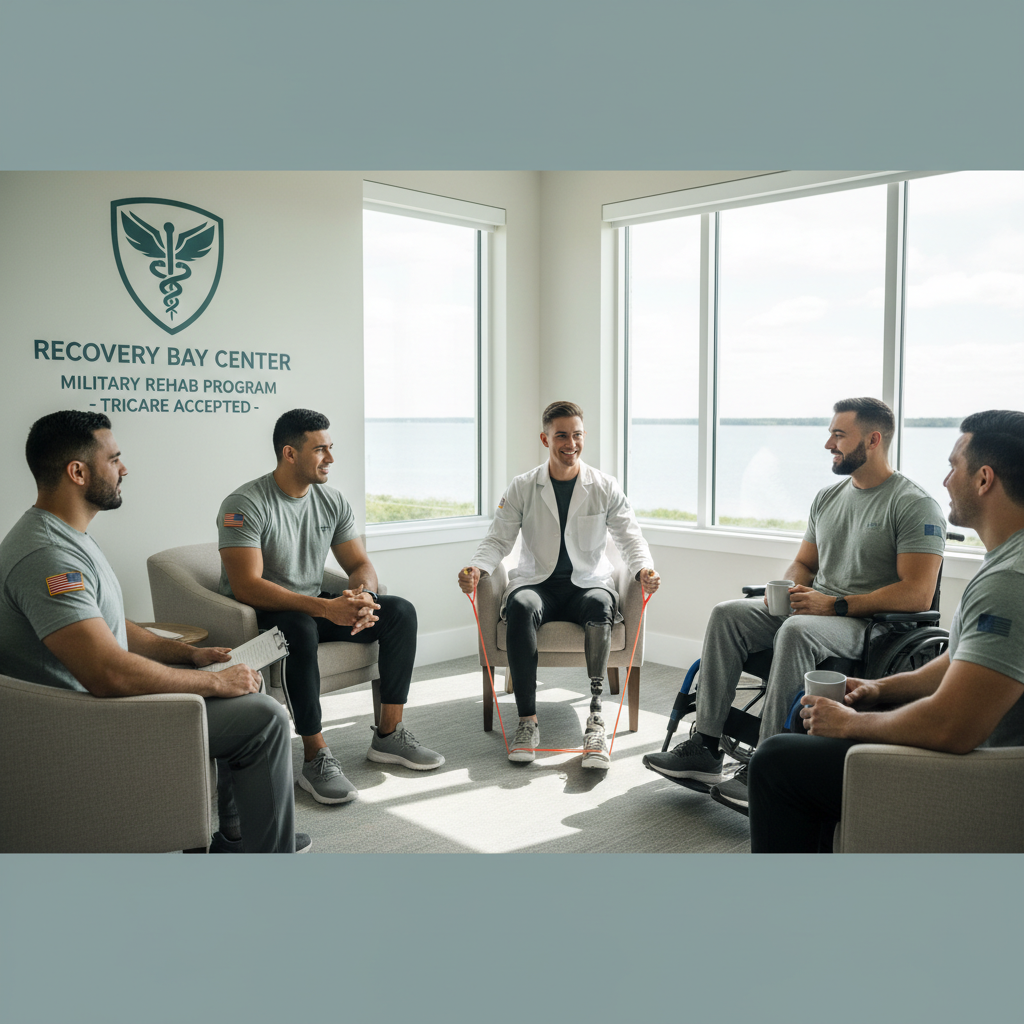As you explore residential addiction treatment, private residential rehab offers an immersive setting that addresses every aspect of your healing journey. At Recovery Bay, our men’s inpatient rehab 45-60 days program ensures you receive comprehensive care in a confidential, structured environment. From medically supervised detox to evidence-based therapy and holistic wellness, each element is designed to meet your unique challenges and support necessary for lasting recovery.
Whether you have tried outpatient approaches or are beginning your first intensive treatment, understanding how private residential rehab differs from other programs will help you make an informed choice. This article will guide you through evidence-based therapies, luxury amenities, life skills training, program length and privacy measures so you can take the next step toward a healthier, sober life.
Understand private residential rehab
What is private residential rehab
Private residential rehab is a round-the-clock treatment model where you live onsite at a facility dedicated to addiction recovery. Unlike outpatient programs or intensive outpatient programs (IOPs), you transition fully into a healing environment that limits external distractions and promotes focus on recovery. According to the Substance Abuse and Mental Health Services Administration (SAMHSA), residential care programs can last from a few weeks to several months, or even up to a year for high-intensity cases [1].
At Recovery Bay, your stay typically spans 45 to 60 days, aligning with research that programs of this length improve long-term outcomes. During this time, you engage in medical detox, individual and group therapy, and complementary wellness activities—all within a men’s-only setting to address gender-specific needs.
How it differs from other options
Residential rehab contrasts with outpatient drug and alcohol programs in several ways:
| Feature | Residential rehab | Outpatient rehab |
|---|---|---|
| Location | Onsite 24/7 care | Clinic or private practice |
| Daily structure | Three-plus hours of therapy, meals, activities | 30–60 minute sessions 1–5 times per week |
| Medical supervision | Continuous monitoring during detox | Limited or no detox supervision |
| Peer community | Shared living environment | No communal housing |
| Intensity | Medium to high intensity | Low to medium intensity |
Outpatient treatment allows you to maintain home and work responsibilities, but it may lack the immersive support and peer accountability that a private residential setting provides. If you require medical oversight during withdrawal or benefit from a supportive community, private residential rehab may be your best option.
Explore evidence-based therapies
Medical detox and supervision
The first phase of recovery often begins with detox, which addresses physical withdrawal symptoms from substances such as alcohol, opioids or stimulants. Detox alone does not tackle underlying psychological issues, so private detox programs integrate medical oversight with transition into therapy. At Recovery Bay, you receive medically supervised detox in a confidential detox treatment wing, supported by physicians and nursing staff around the clock. This approach reduces risk of complications and prepares you for the next treatment stages.
Cognitive behavioral therapy
Cognitive behavioral therapy (CBT) is a cornerstone of evidence-based care. By identifying and challenging negative thought patterns that contribute to substance use, you build healthier coping strategies. Benefits of CBT include:
- Enhanced self-reflection and emotional insight
- Practical tools to manage triggers and cravings
- Reduced relapse risk through long-term skill building
CBT sessions at our center are tailored to men’s experiences, helping you confront societal pressures and traditional gender roles in a supportive environment.
Dual diagnosis support
Many individuals face co-occurring mental health disorders such as depression or anxiety alongside addiction. Dual diagnosis treatment integrates psychiatric care with addiction therapy so you can address both conditions simultaneously. At Recovery Bay, our clinical team collaborates on individualized plans that may include medication management, group therapy and trauma-informed care. This holistic model ensures you receive comprehensive care that acknowledges the interplay between mental health and substance use.
Experience holistic wellness offerings
Wellness treatments and amenities
Beyond clinical therapy, holistic wellness treatments play a vital role in restoring balance. You may choose from yoga, meditation, massage therapy, acupuncture and exercise classes designed to strengthen mind-body connection. These complementary therapies foster relaxation, reduce stress and support emotional healing. By incorporating these modalities into your daily schedule, you tap into new ways to manage anxiety and maintain sobriety after discharge.
Gourmet meals and dining
Nutrition is a key component of recovery. At Recovery Bay, you enjoy chef-prepared meals that focus on fresh, whole foods and balanced macronutrients. Gourmet meals support physical healing, enhance mood stability and nurture a positive relationship with food. Dietary plans are adapted to your preferences and any medical requirements, ensuring you feel energized throughout your treatment journey.
Beachside recovery environment
Setting matters. Luxury residential rehab programs often situate facilities in naturally beautiful, secluded locations to minimize distractions and enhance privacy. Our beachside addiction recovery campus offers ocean views, walking trails and outdoor spaces for reflection. This tranquil environment encourages mindfulness and connection with nature, further enriching your healing process [2].
Build life skills and support
Structured life skills training
Recovery extends beyond abstinence. Structured life skills training equips you with practical tools for managing daily responsibilities, stress and relationships. Core modules include:
- Time management and goal setting
- Financial planning and budgeting
- Communication and conflict resolution
- Stress-reduction techniques
By honing these skills in a supportive environment, you increase confidence and resilience for life after treatment.
Family involvement and aftercare
Addiction affects you and those who care about you. Family program addiction options invite loved ones into select therapy sessions to foster understanding and rebuild trust. Post-treatment support may include alumni groups, sober living referrals and referrals to recovery houses or sober dorms. Research shows that ongoing support dramatically improves long-term success [3].
Evaluate program duration and privacy
Benefits of 45 to 60 day rehab program
Length of stay is a proven predictor of recovery outcomes. Programs lasting three months or longer often correlate with sustained abstinence. Over 90 percent of those who remain abstinent for two years stay drug- and alcohol-free at ten years [4]. A 45 to 60 day rehab program gives you enough time to:
- Complete detox and stabilize physically
- Engage deeply in clinical and holistic therapies
- Begin skill building and relapse prevention planning
Private and semi private rooms
Privacy and comfort support healing. Recovery Bay offers private and semi private rooms that allow you to rest and reflect between therapy sessions. Personalized living spaces respect confidentiality and reduce stress, helping you focus fully on recovery.
Confidentiality and seclusion
Protecting your privacy is essential. Addiction treatment records are safeguarded under HIPAA and 42 CFR Part 2 regulations, which limit disclosure of health information without written consent [2]. Our discreet campus design and confidential admissions process ensure your stay remains private, giving you peace of mind.
Make an informed choice
Insurance and cost considerations
Treatment costs vary by setting and services offered. Thanks to the Affordable Care Act, mental health and substance use disorder treatment are essential health benefits, so most insurance plans cover some level of care [5]. Private residential rehab may require co-pays or co-insurance, but payment plans and sliding scale fees can help bridge gaps. Investing in quality treatment often leads to savings by reducing legal issues, medical complications and workplace disruptions linked to addiction.
How to choose the right center
When evaluating programs, consider:
- Accreditation and licensing status
- Staff qualifications and staff-to-patient ratio
- Range of evidence-based therapies offered
- Holistic and luxury amenities available
- Program length and flexibility
- Privacy measures and confidentiality policies
- Family involvement and aftercare support
Visiting facilities, reading testimonials and consulting with admissions specialists can help you identify the environment that aligns with your recovery goals.
Next steps in your recovery
Taking action begins with a confidential assessment. Reach out to our admissions team to discuss your needs, review program options and verify insurance benefits. From there, you can schedule your arrival, prepare for detox and plan for ongoing support after discharge. At Recovery Bay, we’re committed to guiding you every step of the way.
By choosing private residential rehab at Recovery Bay, you invest in a comprehensive, individualized approach to recovery. Our tailored treatment programs, supportive environment and luxurious amenities work together to empower you on your path to lasting sobriety.





